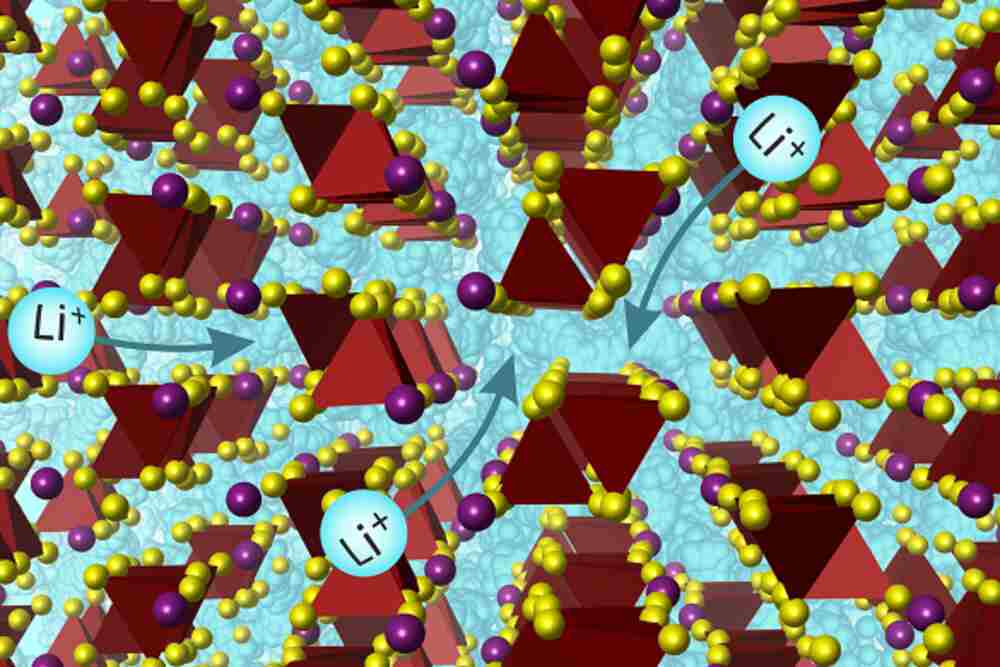Unlocking a sustainable future for batteries is now possible through a groundbreaking discovery

Scientists at the University of Liverpool in England have made a major discovery in the field of materials science and sustainable technology. They have unveiled a new material with exceptional lithium ion conductivity that could redefine the future of batteries. This breakthrough has the potential to replace liquid electrolytes in traditional batteries, improving their safety and efficiency, and helping to create a more sustainable future.
The interdisciplinary team of researchers combined AI technologies with physics-based calculations to design and synthesize this groundbreaking material. By utilizing artificial intelligence along with human expertise, they were able to make informed decisions and uncover new frontiers in materials science.
The material is non-toxic and made up of earth-abundant elements, making it a more sustainable choice for batteries. This discovery paves the way for further chemical optimization and the identification of other high-performance materials.
The implications of this discovery are significant, with potential benefits for electric vehicles, portable electronics, and renewable energy storage. The collaborative effort involved researchers from various departments within the University of Liverpool, and the work was made possible through funding from several institutions.
This breakthrough demonstrates the immense potential of interdisciplinary collaboration in tackling some of the world's most pressing challenges. It also serves as an inspiration for future generations to pursue innovative research and development to create a sustainable future.

 How to resolve AdBlock issue?
How to resolve AdBlock issue?